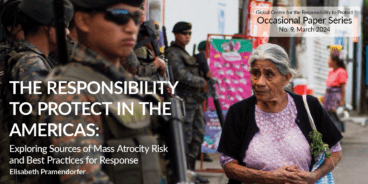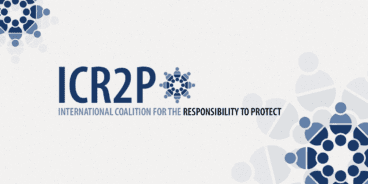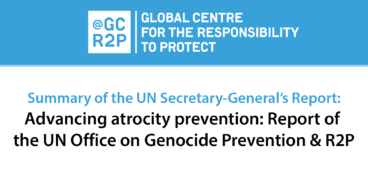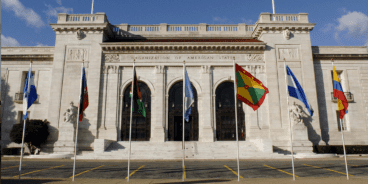
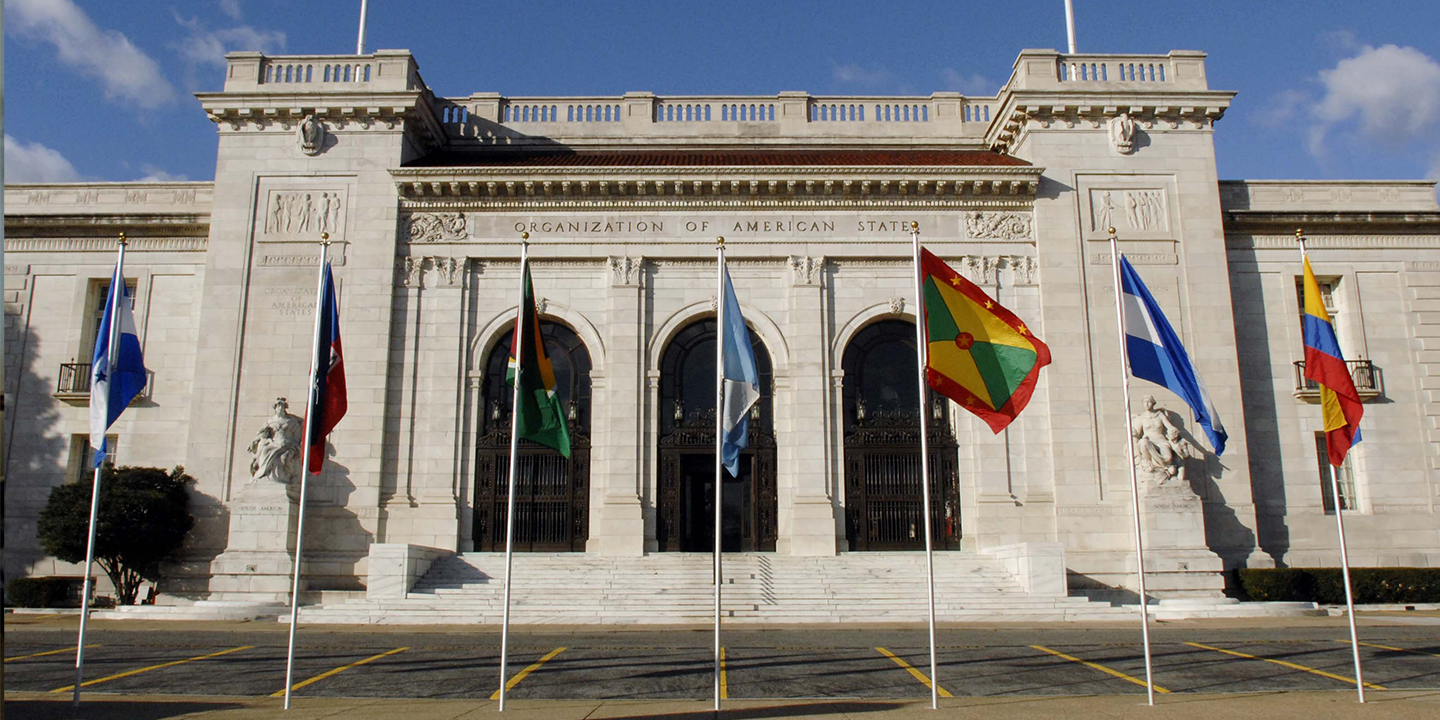
The Responsibility to Protect in the Americas
I was recently appointed to advise the Organization of American States (OAS), the world’s oldest regional organization comprised of the 35 independent states of the Americas, to help design and build a more effective and efficient system to address mass atrocity crimes in the Western Hemisphere. Although proposing a detailed way forward will require my completing a wide range of consultations with member states, civil society groups, and other experts, much more can be done.
Some background is helpful. In 2005, prompted by the failures of the United Nations to stop the genocides in Rwanda and Srebrenica in the 1990s, more than 170 heads of state and government at the World Summit adopted the responsibility to protect. This new principle, grounded in existing legal obligations of states, emphasized they all have an obligation to prevent and respond to mass atrocity crimes, including genocide, war crimes, ethnic cleansing, and crimes against humanity. It emphasized the important role of the international community and regional organizations in assisting in these efforts. And it included a specific commitment of states through the UN to take “collective action” in a “timely and decisive” manner through “appropriate diplomatic, humanitarian, and other peaceful means,” to protect populations from these crimes.
Although the responsibility to protect always envisioned a key role for regional organizations to play in atrocity prevention, as they are generally better positioned to identify and respond to emerging crises more quickly, in practice they have lagged behind. And so it took significant UN efforts to stave off the commission of mass atrocities in such countries as Côte d’Ivoire, Guinea, Kyrgyzstan, and Kenya.
The region has strong experience in human rights and conflict prevention. Many countries are state parties to the American Convention on Human Rights. The Inter-American Commission on Human Rights monitors human rights situations in the region, addresses thematic human rights issues like the rights of indigenous peoples, and runs an individual complaints procedure. And the Inter-American Court can decide cases of importance referred to it by the Commission or states. But as noted in a speech by an OAS representative to the UN in 2011, these efforts are distinct from atrocity prevention and the region’s “practical priorities” were instead on issues like natural resources, power disputes, land, and the environment.
The decision to deprioritize atrocity prevention, in hindsight, was a tragic mistake. Today in Venezuela, Nicolás Maduro’s regime is committing crimes against humanity against civilian populations including extrajudicial killings, arbitrary detentions, torture, disappearances, and other inhumane acts that have denied food and health care to supporters of interim President Juan Guaidó.
It is always much easier for a regional organization to prevent mass atrocities before or just as they begin then after they are raging. There are a wide array of actions that are contemplated as part of early engagement under the responsibility to protect, such as personal diplomacy by top diplomats, the sending of an envoy or fact-finding mission, initiating mediation or conflict resolution processes, the adoption of resolutions recommending specific actions be undertaken, robust human rights reporting, the mobilization of humanitarian assistance for victims, and the requesting of more support from the United Nations, if necessary.
There is much the OAS could consider doing now to prevent mass atrocities in the future.
For example, states might begin by deciding to have an annual dialogue in the General Assembly about the responsibility to protect in the region, informed by a report about activities undertaken in the prior year by the organization. There could be an early warning system put in place where states were proactively informed about situations of concern as they arise along with recommendations for their consideration. There could be a survey conducted across different parts of the OAS to understand how atrocity prevention can operate in a complementary manner with its human rights and conflict prevention activities. And states asking for help building national capacity to identify risk factors and to align their institutions towards prevention could be provided training and support.
While developing a more robust mechanism to apply the responsibility to protect in the Americas is no panacea for solving the problems of Venezuela today, it will help identify further actions that can be taken, excluding the use of force – and the principle will help even more in future situations. But the Organization of American States should not be an international bystander that remains impotent and ineffectual in the face of mass atrocities in the region.
Read Next

Related Content
